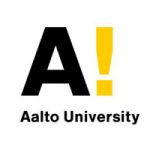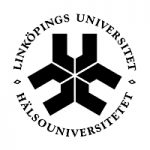项目介绍
At the M-Group at KU Leuven Bruges Campus, we are driving innovation in interconnected, intelligent mechatronic systems. The research group focusses on making systems reliable by developing new technologies in hardware, software, sensors, mechanical structures, energy systems and artificial intelligence. Modern systems need a holistic view on those 4 components, where we integrate expertise of computer science, electrotechnical engineering and mechanical engineering. M-Group is a multi-departemental research group where computer science, electrical and mechanical engineering expertise is combined. The research group consists of 8 professors and more than 40 researchers (postdocs, phd students or assistants) and is supported by a project coordinator, a research manager and 2 technical staff members. We are based at the KU Leuven Campus of Bruges in the province of West Flanders in Belgium (1 hour train ride from Brussels, 3 hour train ride from Paris). The group has access to state-of-the-art labs with recent machines and robotics and has many collaborations with other labs spread over Belgium.
In line of this PhD topic, one of the research lines of the M-group is focused on distributed Machine Learning in sensor networks consisting of computational limited devices. In this research line, headed by prof. Hans Hallez, we develop algorithms and systems to distribute and monitor data processing algorithms over the network to obtain information in a robust and real-time way.
Project
Are you passionate about cutting-edge technology and eager to make a significant impact in the field of wearable robotics? We invite you to apply for a PhD position within the prestigious AERIALIST project, focusing on the safe and robust operation of exoskeletons for healthcare and rehabilitation. Within the AERIALIST project, we work with other partners from universities and companies to improve the field of wearable robotics towards analytics for safe and robust control.
Project Overview:
The increasing complexity of assistive devices, combined with advancements in AI and machine learning, presents new challenges in ensuring safety throughout their lifecycle. Traditional hazard-and-risk analysis techniques often fall short in addressing these emerging issues, as they typically assume that accidents result from random component failures. Our project aims to develop innovative hazard-and-risk analysis techniques that view safety as a control problem, taking into account both component reliability and the dynamic interaction between users and technology.
Research Focus:
Your research will tackle the challenge of gathering and processing movement data from sensors within a body area sensor network. Wearable robotics, such as exoskeletons, rely on human motion as input, often measured using Inertial Movement Units (IMUs). By networking these IMUs, we can enhance the control of complex robotics used for rehabilitation or as prostheses. Ensuring robust and comprehensive data collection is crucial for the correct functionality of these devices. Additionally, you will explore the application of machine learning at the edge on computationally constrained devices, with uncertainty in machine learning. This involves developing efficient algorithms that can operate on low-power, limited-resource hardware, enabling real-time data processing and decision-making directly on the wearable sensors.
Key Responsibilities:
- Explore challenges in data and signal acquisition using wearable sensors.
- Develop algorithms for robust data collection and analysis to extract motion parameters (e.g., limb angles, speed) from raw sensor data.
- Implement machine learning techniques at the edge to enable real-time processing on computationally constrained devices.
- Collaborate closely with other project partners within the AERIALIST consortium.
Why Join Us?
- Be part of a groundbreaking project that addresses distributed signal processing and AI in wearable robotics.
- Work in a collaborative and interdisciplinary environment with leading experts in the field.
- Contribute to advancements that have the potential to transform healthcare and rehabilitation.
Profile
- We are seeking a highly motivated, enthusiastic, passionate, and communicative researcher who holds a Master of Science degree in electrical engineering, computer science or Mechanical Engineering, with outstanding academic achievements (top 5%).
- You should show a high affinity with embedded systems, sensor networks, Body area networks en signal processing.
- Knowledge of the biomedical application domain is an asset
- You are skilled in development in hardware platforms and embedded software, or are willing to learn
- You have knowledge about current state-of-the-art low power platforms for edge computing (Jetson Nano, STM32, TI MSP430,…)
- You have good communication skills and are able to build a network
- You have a critical mindset and are able to formulate your own research questions
Offer
This position is a Marie Slodowska-Curie scholarship from the European Commission.
We offer:
- A fully funded 3-year PhD scholarship (extendable to 4 years)
- Next to you monthly grant, you have a living allowance to travel abroad and to finanance your secondments. If you have a family, you can obtain a family allowance.
- Specialized doctoral training to boost your expertise.
- Opportunities to collaborate in groundbreaking interdisciplinary research and participate in international conferences.
- Access to state-of-the-art infrastructure and a range of university benefits (health insurance, etc.).
- A dynamic, passionate team of fellow PhD students and test engineers.
Full details can be consulted at https://dn-aerialist.eu/
In this topic you will be working together with prof. Georg Rauter of the University of Basel (Switserland) and the company PLUX Biosignals loccated in Lissbon (Portugal). Secondments to these institutions are planned.
Link to doctoral position DC5
Link to project website
Interested?
If you apply please provide the following information:- CV using the EUROPASS template- full transcripts of bachelor and master (if possible). Please provide the transcripts as complete as possible.- 2 references with contact information- if possible, a pdf version of your master thesis.- if possible, a certificat of an English language test (IELTS or TOEFL)
For more information please contact Prof. dr. ir. Hans Hallez, tel.: +32 50 66 48 38, mail: hans.hallez@kuleuven.be or Mr. Dries Vanoost, tel.: +32 50 66 48 88, mail: dries.vanoost@kuleuven.be.
You can apply for this job no later than May 02, 2025 via the online application tool
KU Leuven strives for an inclusive, respectful and socially safe environment. We embrace diversity among individuals and groups as an asset. Open dialogue and differences in perspective are essential for an ambitious research and educational environment. In our commitment to equal opportunity, we recognize the consequences of historical inequalities. We do not accept any form of discrimination based on, but not limited to, gender identity and expression, sexual orientation, age, ethnic or national background, skin colour, religious and philosophical diversity, neurodivergence, employment disability, health, or socioeconomic status. For questions about accessibility or support offered, we are happy to assist you at this email address.
Heb je een vraag over de online sollicitatieprocedure? Raadpleeg onze veelgestelde vragen of stuur een e-mail naar solliciteren@kuleuven.be
联系方式
电话: +32 16 324010相关项目推荐
KD博士实时收录全球顶尖院校的博士项目,总有一个项目等着你!






